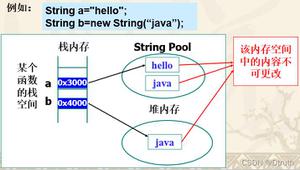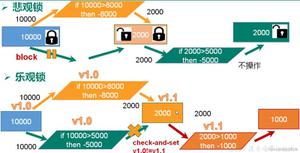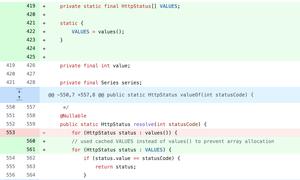Java时间轮算法的实现代码示例
考虑这样一个场景,现在有5000个任务,要让这5000个任务每隔5分中触发某个操作,怎么去实现这个需求。大部分人首先想到的是使用定时器,但是5000个任务,你就要用5000个定时器,一个定时器就是一个线程,你懂了吧,这种方法肯定是不行的。
针对这个场景,催生了时间轮算法,时间轮到底是什么?我一贯的风格,自行谷歌去。大发慈悲,发个时间轮介绍你们看看,看文字和图就好了,代码不要看了,那个文章里的代码运行不起来,时间轮介绍。
看好了介绍,我们就开始动手吧。
开发环境:idea + jdk1.8 + maven
新建一个maven工程

创建如下的目录结构

不要忘了pom.xml中添加netty库
<dependencies>
<dependency>
<groupId>io.netty</groupId>
<artifactId>netty-all</artifactId>
<version>4.1.5.Final</version>
</dependency>
</dependencies>
代码如下
Timeout.Java
package com.tanghuachun.timer;
public interface Timeout {
Timer timer();
TimerTask task();
boolean isExpired();
boolean isCancelled();
boolean cancel();
}
Timer.java
package com.tanghuachun.timer;
import java.util.Set;
import java.util.concurrent.TimeUnit;
public interface Timer {
Timeout newTimeout(TimerTask task, long delay, TimeUnit unit, String argv);
Set<Timeout> stop();
}
TimerTask.java
package com.tanghuachun.timer;
public interface TimerTask {
void run(Timeout timeout, String argv) throws Exception;
}
TimerWheel.java
/*
* Copyright 2012 The Netty Project
*
* The Netty Project licenses this file to you under the Apache License,
* version 2.0 (the "License"); you may not use this file except in compliance
* with the License. You may obtain a copy of the License at:
*
* http://www.apache.org/licenses/LICENSE-2.0
*
* Unless required by applicable law or agreed to in writing, software
* distributed under the License is distributed on an "AS IS" BASIS, WITHOUT
* WARRANTIES OR CONDITIONS OF ANY KIND, either express or implied. See the
* License for the specific language governing permissions and limitations
* under the License.
*/
package com.tanghuachun.timer;
import io.netty.util.*;
import io.netty.util.internal.PlatformDependent;
import io.netty.util.internal.StringUtil;
import io.netty.util.internal.logging.InternalLogger;
import io.netty.util.internal.logging.InternalLoggerFactory;
import java.util.Collections;
import java.util.HashSet;
import java.util.Queue;
import java.util.Set;
import java.util.concurrent.CountDownLatch;
import java.util.concurrent.Executors;
import java.util.concurrent.ThreadFactory;
import java.util.concurrent.TimeUnit;
import java.util.concurrent.atomic.AtomicIntegerFieldUpdater;
public class TimerWheel implements Timer {
static final InternalLogger logger =
InternalLoggerFactory.getInstance(TimerWheel.class);
private static final ResourceLeakDetector<TimerWheel> leakDetector = ResourceLeakDetectorFactory.instance()
.newResourceLeakDetector(TimerWheel.class, 1, Runtime.getRuntime().availableProcessors() * 4L);
private static final AtomicIntegerFieldUpdater<TimerWheel> WORKER_STATE_UPDATER;
static {
AtomicIntegerFieldUpdater<TimerWheel> workerStateUpdater =
PlatformDependent.newAtomicIntegerFieldUpdater(TimerWheel.class, "workerState");
if (workerStateUpdater == null) {
workerStateUpdater = AtomicIntegerFieldUpdater.newUpdater(TimerWheel.class, "workerState");
}
WORKER_STATE_UPDATER = workerStateUpdater;
}
private final ResourceLeak leak;
private final Worker worker = new Worker();
private final Thread workerThread;
public static final int WORKER_STATE_INIT = 0;
public static final int WORKER_STATE_STARTED = 1;
public static final int WORKER_STATE_SHUTDOWN = 2;
@SuppressWarnings({ "unused", "FieldMayBeFinal", "RedundantFieldInitialization" })
private volatile int workerState = WORKER_STATE_INIT; // 0 - init, 1 - started, 2 - shut down
private final long tickDuration;
private final HashedWheelBucket[] wheel;
private final int mask;
private final CountDownLatch startTimeInitialized = new CountDownLatch(1);
private final Queue<HashedWheelTimeout> timeouts = PlatformDependent.newMpscQueue();
private final Queue<HashedWheelTimeout> cancelledTimeouts = PlatformDependent.newMpscQueue();
private volatile long startTime;
/**
* Creates a new timer with the default thread factory
* ({@link Executors#defaultThreadFactory()}), default tick duration, and
* default number of ticks per wheel.
*/
public TimerWheel() {
this(Executors.defaultThreadFactory());
}
/**
* Creates a new timer with the default thread factory
* ({@link Executors#defaultThreadFactory()}) and default number of ticks
* per wheel.
*
* @param tickDuration the duration between tick
* @param unit the time unit of the {@code tickDuration}
* @throws NullPointerException if {@code unit} is {@code null}
* @throws IllegalArgumentException if {@code tickDuration} is <= 0
*/
public TimerWheel(long tickDuration, TimeUnit unit) {
this(Executors.defaultThreadFactory(), tickDuration, unit);
}
/**
* Creates a new timer with the default thread factory
* ({@link Executors#defaultThreadFactory()}).
*
* @param tickDuration the duration between tick
* @param unit the time unit of the {@code tickDuration}
* @param ticksPerWheel the size of the wheel
* @throws NullPointerException if {@code unit} is {@code null}
* @throws IllegalArgumentException if either of {@code tickDuration} and {@code ticksPerWheel} is <= 0
*/
public TimerWheel(long tickDuration, TimeUnit unit, int ticksPerWheel) {
this(Executors.defaultThreadFactory(), tickDuration, unit, ticksPerWheel);
}
/**
* Creates a new timer with the default tick duration and default number of
* ticks per wheel.
*
* @param threadFactory a {@link ThreadFactory} that creates a
* background {@link Thread} which is dedicated to
* {@link TimerTask} execution.
* @throws NullPointerException if {@code threadFactory} is {@code null}
*/
public TimerWheel(ThreadFactory threadFactory) {
this(threadFactory, 100, TimeUnit.MILLISECONDS);
}
/**
* Creates a new timer with the default number of ticks per wheel.
*
* @param threadFactory a {@link ThreadFactory} that creates a
* background {@link Thread} which is dedicated to
* {@link TimerTask} execution.
* @param tickDuration the duration between tick
* @param unit the time unit of the {@code tickDuration}
* @throws NullPointerException if either of {@code threadFactory} and {@code unit} is {@code null}
* @throws IllegalArgumentException if {@code tickDuration} is <= 0
*/
public TimerWheel(
ThreadFactory threadFactory, long tickDuration, TimeUnit unit) {
this(threadFactory, tickDuration, unit, 512);
}
/**
* Creates a new timer.
*
* @param threadFactory a {@link ThreadFactory} that creates a
* background {@link Thread} which is dedicated to
* {@link TimerTask} execution.
* @param tickDuration the duration between tick
* @param unit the time unit of the {@code tickDuration}
* @param ticksPerWheel the size of the wheel
* @throws NullPointerException if either of {@code threadFactory} and {@code unit} is {@code null}
* @throws IllegalArgumentException if either of {@code tickDuration} and {@code ticksPerWheel} is <= 0
*/
public TimerWheel(
ThreadFactory threadFactory,
long tickDuration, TimeUnit unit, int ticksPerWheel) {
this(threadFactory, tickDuration, unit, ticksPerWheel, true);
}
/**
* Creates a new timer.
*
* @param threadFactory a {@link ThreadFactory} that creates a
* background {@link Thread} which is dedicated to
* {@link TimerTask} execution.
* @param tickDuration the duration between tick
* @param unit the time unit of the {@code tickDuration}
* @param ticksPerWheel the size of the wheel
* @param leakDetection {@code true} if leak detection should be enabled always, if false it will only be enabled
* if the worker thread is not a daemon thread.
* @throws NullPointerException if either of {@code threadFactory} and {@code unit} is {@code null}
* @throws IllegalArgumentException if either of {@code tickDuration} and {@code ticksPerWheel} is <= 0
*/
public TimerWheel(
ThreadFactory threadFactory,
long tickDuration, TimeUnit unit, int ticksPerWheel, boolean leakDetection) {
if (threadFactory == null) {
throw new NullPointerException("threadFactory");
}
if (unit == null) {
throw new NullPointerException("unit");
}
if (tickDuration <= 0) {
throw new IllegalArgumentException("tickDuration must be greater than 0: " + tickDuration);
}
if (ticksPerWheel <= 0) {
throw new IllegalArgumentException("ticksPerWheel must be greater than 0: " + ticksPerWheel);
}
// Normalize ticksPerWheel to power of two and initialize the wheel.
wheel = createWheel(ticksPerWheel);
mask = wheel.length - 1;
// Convert tickDuration to nanos.
this.tickDuration = unit.toNanos(tickDuration);
// Prevent overflow.
if (this.tickDuration >= Long.MAX_VALUE / wheel.length) {
throw new IllegalArgumentException(String.format(
"tickDuration: %d (expected: 0 < tickDuration in nanos < %d",
tickDuration, Long.MAX_VALUE / wheel.length));
}
workerThread = threadFactory.newThread(worker);
leak = leakDetection || !workerThread.isDaemon() ? leakDetector.open(this) : null;
}
private static HashedWheelBucket[] createWheel(int ticksPerWheel) {
if (ticksPerWheel <= 0) {
throw new IllegalArgumentException(
"ticksPerWheel must be greater than 0: " + ticksPerWheel);
}
if (ticksPerWheel > 1073741824) {
throw new IllegalArgumentException(
"ticksPerWheel may not be greater than 2^30: " + ticksPerWheel);
}
ticksPerWheel = normalizeTicksPerWheel(ticksPerWheel);
HashedWheelBucket[] wheel = new HashedWheelBucket[ticksPerWheel];
for (int i = 0; i < wheel.length; i ++) {
wheel[i] = new HashedWheelBucket();
}
return wheel;
}
private static int normalizeTicksPerWheel(int ticksPerWheel) {
int normalizedTicksPerWheel = 1;
while (normalizedTicksPerWheel < ticksPerWheel) {
normalizedTicksPerWheel <<= 1;
}
return normalizedTicksPerWheel;
}
/**
* Starts the background thread explicitly. The background thread will
* start automatically on demand even if you did not call this method.
*
* @throws IllegalStateException if this timer has been
* {@linkplain #stop() stopped} already
*/
public void start() {
switch (WORKER_STATE_UPDATER.get(this)) {
case WORKER_STATE_INIT:
if (WORKER_STATE_UPDATER.compareAndSet(this, WORKER_STATE_INIT, WORKER_STATE_STARTED)) {
workerThread.start();
}
break;
case WORKER_STATE_STARTED:
break;
case WORKER_STATE_SHUTDOWN:
throw new IllegalStateException("cannot be started once stopped");
default:
throw new Error("Invalid WorkerState");
}
// Wait until the startTime is initialized by the worker.
while (startTime == 0) {
try {
startTimeInitialized.await();
} catch (InterruptedException ignore) {
// Ignore - it will be ready very soon.
}
}
}
@Override
public Set<Timeout> stop() {
if (Thread.currentThread() == workerThread) {
throw new IllegalStateException(
TimerWheel.class.getSimpleName() +
".stop() cannot be called from " +
TimerTask.class.getSimpleName());
}
if (!WORKER_STATE_UPDATER.compareAndSet(this, WORKER_STATE_STARTED, WORKER_STATE_SHUTDOWN)) {
// workerState can be 0 or 2 at this moment - let it always be 2.
WORKER_STATE_UPDATER.set(this, WORKER_STATE_SHUTDOWN);
if (leak != null) {
leak.close();
}
return Collections.emptySet();
}
boolean interrupted = false;
while (workerThread.isAlive()) {
workerThread.interrupt();
try {
workerThread.join(100);
} catch (InterruptedException ignored) {
interrupted = true;
}
}
if (interrupted) {
Thread.currentThread().interrupt();
}
if (leak != null) {
leak.close();
}
return worker.unprocessedTimeouts();
}
@Override
public Timeout newTimeout(TimerTask task, long delay, TimeUnit unit, String argv) {
if (task == null) {
throw new NullPointerException("task");
}
if (unit == null) {
throw new NullPointerException("unit");
}
start();
// Add the timeout to the timeout queue which will be processed on the next tick.
// During processing all the queued HashedWheelTimeouts will be added to the correct HashedWheelBucket.
long deadline = System.nanoTime() + unit.toNanos(delay) - startTime;
HashedWheelTimeout timeout = new HashedWheelTimeout(this, task, deadline, argv);
timeouts.add(timeout);
return timeout;
}
private final class Worker implements Runnable {
private final Set<Timeout> unprocessedTimeouts = new HashSet<Timeout>();
private long tick;
@Override
public void run() {
// Initialize the startTime.
startTime = System.nanoTime();
if (startTime == 0) {
// We use 0 as an indicator for the uninitialized value here, so make sure it's not 0 when initialized.
startTime = 1;
}
// Notify the other threads waiting for the initialization at start().
startTimeInitialized.countDown();
do {
final long deadline = waitForNextTick();
if (deadline > 0) {
int idx = (int) (tick & mask);
processCancelledTasks();
HashedWheelBucket bucket =
wheel[idx];
transferTimeoutsToBuckets();
bucket.expireTimeouts(deadline);
tick++;
}
} while (WORKER_STATE_UPDATER.get(TimerWheel.this) == WORKER_STATE_STARTED);
// Fill the unprocessedTimeouts so we can return them from stop() method.
for (HashedWheelBucket bucket: wheel) {
bucket.clearTimeouts(unprocessedTimeouts);
}
for (;;) {
HashedWheelTimeout timeout = timeouts.poll();
if (timeout == null) {
break;
}
if (!timeout.isCancelled()) {
unprocessedTimeouts.add(timeout);
}
}
processCancelledTasks();
}
private void transferTimeoutsToBuckets() {
// transfer only max. 100000 timeouts per tick to prevent a thread to stale the workerThread when it just
// adds new timeouts in a loop.
for (int i = 0; i < 100000; i++) {
HashedWheelTimeout timeout = timeouts.poll();
if (timeout == null) {
// all processed
break;
}
if (timeout.state() == HashedWheelTimeout.ST_CANCELLED) {
// Was cancelled in the meantime.
continue;
}
long calculated = timeout.deadline / tickDuration;
timeout.remainingRounds = (calculated - tick) / wheel.length;
final long ticks = Math.max(calculated, tick); // Ensure we don't schedule for past.
int stopIndex = (int) (ticks & mask);
HashedWheelBucket bucket = wheel[stopIndex];
bucket.addTimeout(timeout);
}
}
private void processCancelledTasks() {
for (;;) {
HashedWheelTimeout timeout = cancelledTimeouts.poll();
if (timeout == null) {
// all processed
break;
}
try {
timeout.remove();
} catch (Throwable t) {
if (logger.isWarnEnabled()) {
logger.warn("An exception was thrown while process a cancellation task", t);
}
}
}
}
/**
* calculate goal nanoTime from startTime and current tick number,
* then wait until that goal has been reached.
* @return Long.MIN_VALUE if received a shutdown request,
* current time otherwise (with Long.MIN_VALUE changed by +1)
*/
private long waitForNextTick() {
long deadline = tickDuration * (tick + 1);
for (;;) {
final long currentTime = System.nanoTime() - startTime;
long sleepTimeMs = (deadline - currentTime + 999999) / 1000000;
if (sleepTimeMs <= 0) {
if (currentTime == Long.MIN_VALUE) {
return -Long.MAX_VALUE;
} else {
return currentTime;
}
}
// Check if we run on windows, as if thats the case we will need
// to round the sleepTime as workaround for a bug that only affect
// the JVM if it runs on windows.
//
// See https://github.com/netty/netty/issues/356
if (PlatformDependent.isWindows()) {
sleepTimeMs = sleepTimeMs / 10 * 10;
}
try {
Thread.sleep(sleepTimeMs);
} catch (InterruptedException ignored) {
if (WORKER_STATE_UPDATER.get(TimerWheel.this) == WORKER_STATE_SHUTDOWN) {
return Long.MIN_VALUE;
}
}
}
}
public Set<Timeout> unprocessedTimeouts() {
return Collections.unmodifiableSet(unprocessedTimeouts);
}
}
private static final class HashedWheelTimeout implements Timeout {
private static final int ST_INIT = 0;
private static final int ST_CANCELLED = 1;
private static final int ST_EXPIRED = 2;
private static final AtomicIntegerFieldUpdater<HashedWheelTimeout> STATE_UPDATER;
static {
AtomicIntegerFieldUpdater<HashedWheelTimeout> updater =
PlatformDependent.newAtomicIntegerFieldUpdater(HashedWheelTimeout.class, "state");
if (updater == null) {
updater = AtomicIntegerFieldUpdater.newUpdater(HashedWheelTimeout.class, "state");
}
STATE_UPDATER = updater;
}
private final TimerWheel timer;
private final TimerTask task;
private final long deadline;
@SuppressWarnings({"unused", "FieldMayBeFinal", "RedundantFieldInitialization" })
private volatile int state = ST_INIT;
// remainingRounds will be calculated and set by Worker.transferTimeoutsToBuckets() before the
// HashedWheelTimeout will be added to the correct HashedWheelBucket.
long remainingRounds;
String argv;
// This will be used to chain timeouts in HashedWheelTimerBucket via a double-linked-list.
// As only the workerThread will act on it there is no need for synchronization / volatile.
HashedWheelTimeout next;
HashedWheelTimeout prev;
// The bucket to which the timeout was added
HashedWheelBucket bucket;
HashedWheelTimeout(TimerWheel timer, TimerTask task, long deadline, String argv) {
this.timer = timer;
this.task = task;
this.deadline = deadline;
this.argv = argv;
}
@Override
public Timer timer() {
return timer;
}
@Override
public TimerTask task() {
return task;
}
@Override
public boolean cancel() {
// only update the state it will be removed from HashedWheelBucket on next tick.
if (!compareAndSetState(ST_INIT, ST_CANCELLED)) {
return false;
}
// If a task should be canceled we put this to another queue which will be processed on each tick.
// So this means that we will have a GC latency of max. 1 tick duration which is good enough. This way
// we can make again use of our MpscLinkedQueue and so minimize the locking / overhead as much as possible.
timer.cancelledTimeouts.add(this);
return true;
}
void remove() {
HashedWheelBucket bucket = this.bucket;
if (bucket != null) {
bucket.remove(this);
}
}
public boolean compareAndSetState(int expected, int state) {
return STATE_UPDATER.compareAndSet(this, expected, state);
}
public int state() {
return state;
}
@Override
public boolean isCancelled() {
return state() == ST_CANCELLED;
}
@Override
public boolean isExpired() {
return state() == ST_EXPIRED;
}
public void expire() {
if (!compareAndSetState(ST_INIT, ST_EXPIRED)) {
return;
}
try {
task.run(this, argv);
} catch (Throwable t) {
if (logger.isWarnEnabled()) {
logger.warn("An exception was thrown by " + TimerTask.class.getSimpleName() + '.', t);
}
}
}
@Override
public String toString() {
final long currentTime = System.nanoTime();
long remaining = deadline - currentTime + timer.startTime;
StringBuilder buf = new StringBuilder(192)
.append(StringUtil.simpleClassName(this))
.append('(')
.append("deadline: ");
if (remaining > 0) {
buf.append(remaining)
.append(" ns later");
} else if (remaining < 0) {
buf.append(-remaining)
.append(" ns ago");
} else {
buf.append("now");
}
if (isCancelled()) {
buf.append(", cancelled");
}
return buf.append(", task: ")
.append(task())
.append(')')
.toString();
}
}
/**
* Bucket that stores HashedWheelTimeouts. These are stored in a linked-list like datastructure to allow easy
* removal of HashedWheelTimeouts in the middle. Also the HashedWheelTimeout act as nodes themself and so no
* extra object creation is needed.
*/
private static final class HashedWheelBucket {
// Used for the linked-list datastructure
private HashedWheelTimeout head;
private HashedWheelTimeout tail;
/**
* Add {@link HashedWheelTimeout} to this bucket.
*/
public void addTimeout(HashedWheelTimeout timeout) {
assert timeout.bucket == null;
timeout.bucket = this;
if (head == null) {
head = tail = timeout;
} else {
tail.next = timeout;
timeout.prev = tail;
tail = timeout;
}
}
/**
* Expire all {@link HashedWheelTimeout}s for the given {@code deadline}.
*/
public void expireTimeouts(long deadline) {
HashedWheelTimeout timeout = head;
// process all timeouts
while (timeout != null) {
boolean remove = false;
if (timeout.remainingRounds <= 0) {
if (timeout.deadline <= deadline) {
timeout.expire();
} else {
// The timeout was placed into a wrong slot. This should never happen.
throw new IllegalStateException(String.format(
"timeout.deadline (%d) > deadline (%d)", timeout.deadline, deadline));
}
remove = true;
} else if (timeout.isCancelled()) {
remove = true;
} else {
timeout.remainingRounds --;
}
// store reference to next as we may null out timeout.next in the remove block.
HashedWheelTimeout next = timeout.next;
if (remove) {
remove(timeout);
}
timeout = next;
}
}
public void remove(HashedWheelTimeout timeout) {
HashedWheelTimeout next = timeout.next;
// remove timeout that was either processed or cancelled by updating the linked-list
if (timeout.prev != null) {
timeout.prev.next = next;
}
if (timeout.next != null) {
timeout.next.prev = timeout.prev;
}
if (timeout == head) {
// if timeout is also the tail we need to adjust the entry too
if (timeout == tail) {
tail = null;
head = null;
} else {
head = next;
}
} else if (timeout == tail) {
// if the timeout is the tail modify the tail to be the prev node.
tail = timeout.prev;
}
// null out prev, next and bucket to allow for GC.
timeout.prev = null;
timeout.next = null;
timeout.bucket = null;
}
/**
* Clear this bucket and return all not expired / cancelled {@link Timeout}s.
*/
public void clearTimeouts(Set<Timeout> set) {
for (;;) {
HashedWheelTimeout timeout = pollTimeout();
if (timeout == null) {
return;
}
if (timeout.isExpired() || timeout.isCancelled()) {
continue;
}
set.add(timeout);
}
}
private HashedWheelTimeout pollTimeout() {
HashedWheelTimeout head = this.head;
if (head == null) {
return null;
}
HashedWheelTimeout next = head.next;
if (next == null) {
tail = this.head = null;
} else {
this.head = next;
next.prev = null;
}
// null out prev and next to allow for GC.
head.next = null;
head.prev = null;
head.bucket = null;
return head;
}
}
}
编写测试类Main.java
package com.tanghuachun.timer;
import java.util.concurrent.TimeUnit;
/**
* Created by darren on 2016/11/17.
*/
public class Main implements TimerTask{
final static Timer timer = new TimerWheel();
public static void main(String[] args) {
TimerTask timerTask = new Main();
for (int i = 0; i < 10; i++) {
timer.newTimeout(timerTask, 5, TimeUnit.SECONDS, "" + i );
}
}
@Override
public void run(Timeout timeout, String argv) throws Exception {
System.out.println("timeout, argv = " + argv );
}
}
然后就可以看到运行结果啦。
工程代码下载(以maven的方式导入)。
以上是 Java时间轮算法的实现代码示例 的全部内容, 来源链接: utcz.com/p/214403.html









